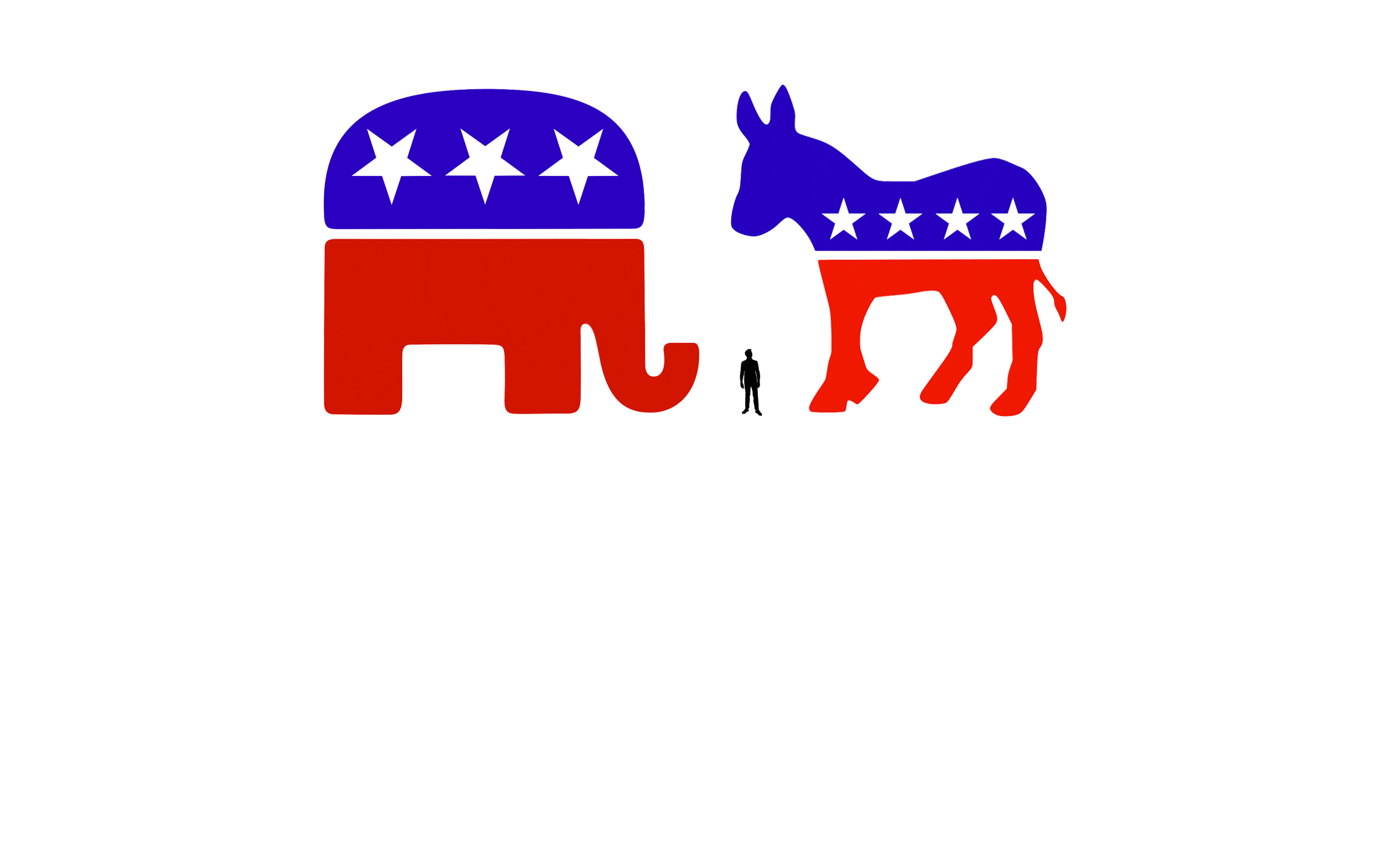The real problem with an independent run for president
America is a two-party state


A free daily email with the biggest news stories of the day – and the best features from TheWeek.com
You are now subscribed
Your newsletter sign-up was successful
Green Party radicals and dopey coffee magnate Howard Schultz agree: American voters don't have enough choice. If you don't like the options put forth by the Republican or Democratic parties, with rare exceptions you can either cast a largely symbolic protest vote or go pound sand. The result is that "both parties are consistently not doing what's necessary on behalf of the American people and are engaged, every single day, in revenge politics," complains Schultz.
Yet in all his interviews and speeches, Schultz has not once identified the major reason why there is no national third party. The reason is that America is a two-party state — where both the GOP and the Democrats are part of the government and have used state power to erect near-insurmountable barriers to third party competition.
Here's how it works. As Seth Ackerman explained in detail some time ago, Democratic and Republican Party bosses have conspired over the years to make running outside the two-party system all but impossible. Third parties or independent candidates are saddled with tremendous signature-collection requirements (hundreds or thousands of times as many as in peer nations), and other burdensome rules. Then the ones that do fulfill onerous legal requirements are subject to intense legal harassment, typically by the dominant party in whatever state is in question. This is usually carried out by party hack lawyers getting party hack judges to disqualify signatures, filing endless lawsuits quibbling over candidate eligibility, or other such tactics.
The Week
Escape your echo chamber. Get the facts behind the news, plus analysis from multiple perspectives.

Sign up for The Week's Free Newsletters
From our morning news briefing to a weekly Good News Newsletter, get the best of The Week delivered directly to your inbox.
From our morning news briefing to a weekly Good News Newsletter, get the best of The Week delivered directly to your inbox.
Notably, most of these requirements do not apply to the Democrats or Republicans, who are automatically granted ballot access in most states. Thus established, the parties are then effectively guaranteed representation in powerful government institutions — like the Federal Communications Commission, where each party always has at least two out of five seats.
Incidentally, that is why most even slightly successful independent runs for president are done by ultra-rich people who can afford to hire battalions of signature gatherers and lawyers.
This contrasts with a one-party state, in which any democratic institutions are completely fraudulent. Saddam Hussein would hold routine "elections" in which the Baath Party was the only option and he would win 99 percent of the vote.
Obviously America's two-party state is not that bad. Genuine political competition does happen to some degree. But America's political options really are heavily limited through state repression (just look at the dodgy tactics the New York state Democratic machine uses to prevent political competition). We might say our democratic institutions are only half fraudulent.
A free daily email with the biggest news stories of the day – and the best features from TheWeek.com
Pundits and political scientists often overlook this as well. They instead point to something called "Duverger's Law," a noted tendency in first-past-the-post election systems to develop only two major parties due to fear of vote-splitting and allowing the opposing party to win. And indeed countries with such systems tend to oscillate between two dominant parties. The U.K. with its Westminster system, for instance, has had a Labour Party or Conservative Party prime minister continuously since 1922.
However, the U.K. (and similar countries like Canada and Australia) also has smaller parties that do manage to win non-trivial numbers of seats — most notably the Liberal Democrats and the Scottish National Party in recent history. That's because while it may be very difficult for the whole country to overcome the vote-splitting fear, it's much easier to accomplish in a limited number of races. What's more, before 1922 the Liberal Party was the major second party — only replaced by Labour after decades of electioneering work.
All that was only possible because the U.K. is not a two-party state, and allows new parties reasonably easy access to the ballot. Indeed, the Populist Party nearly accomplished a Labour Party-style disruption in the U.S. in the 1890s — i.e. before the establishment of the formal two-party duopoly.
Despite the slogan of government "of the people, by the people, for the people," the sad reality is that the United States' political institutions have a strong overtone of authoritarianism. Howard Schultz is not likely to discover or mention this fact, but that is why he couldn't possibly win even if his politics weren't naked billionaire class interest covered over with a good-government veneer. But at least his candidacy might prompt Americans to discover the cutting-edge democratic innovations of the 19th century.
Ryan Cooper is a national correspondent at TheWeek.com. His work has appeared in the Washington Monthly, The New Republic, and the Washington Post.
